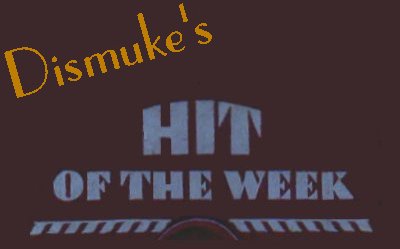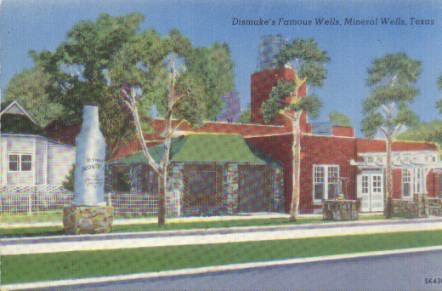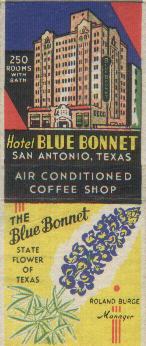

November 2002
November 28, 2002
This week's Hit of the Week is brought
to you by

(from 1929 ad)
Marianne
Victor Arden-Phil Ohman & their
Orch. 1928
(Victor 21776-B)
Lover
Come Back To Me
Victor Arden-Phil Ohman & their
Orch. 1928
(Victor 21776-A)
This week's selections are from
the musical comedy The New Moon which opened at New York's Imperial
Theatre on September 19, 1928. The show ran for 509 performances
and featured music by Sigmund Romberg and lyrics by Oscar Hammerstein II.
The piano duo of Victor Arden and
Phil Ohman became well known in the 1920s through piano rolls and recordings
for the Victor Talking Machine Company. Both appeared in the cast
of the Gershwin musicals Lady Be Good and Oh Kay! and their
band performed in the pit for several other Broadway productions.
Arden and Ohman were also pioneers in radio and had their own broadcasts
as early as the mid 1920s. By the 1930s, both had separate careers
with Arden heading up the house band on several network radio programs
through the late 1940s. The duo reunited briefly to make recordings
for the Brunswick label in the mid 1930s.
November 21, 2002
This week's Hit of the Week is brought
to you by

DISMUKE'S FAMOUS WELLS
Mineral Wells, Texas
Home of PRONTO-LAX,
Famous Mineral Water Concentrated
At this scenic spot, visitors and
residents alike stop daily for their ration of healthful mineral water
drawn directly from the mineral water wells.
|
(from circa 1930s postcard)
Visit the Famous Mineral Water Company
website
Wake
Up And Sing
Eddy Duchin and His Orchestra
Lew Sherwood, vocal
1936
(Victor 25254-A)
South
Wind
Eddy Duchin and His Orchestra
Lew Sherwood, vocal
1936
(Victor 25585-B)
Duchin, a pianist with the Leo Reisman
Orchestra, started his own band in 1931 and it soon became the most successful
society band of the decade. He interrupted his musical career during
World War II to join the Navy where he was a Lieutenant. The
band was as popular as ever in 1951 when Duchin died of Leukemia at the
age of 41. His life was the subject of the 1956 film The Eddy
Duchin Story. In 1962, Duchin's son Peter formed a dance band
patterned after his father's. Today, he is still active with his
band and other
musical
endeavors.
EXTRA
Just for fun, I thought I would
demonstrate one of the features available on the audio restoration software
I use. All of the selections featured on my website were, of
course, recorded before the advent of stereo. The audio restoration
software, however, has the ability to take a mono recording and make it
sound like stereo. Here is how the above recording of "South
Wind" sounds in simulated stereo. (Note: In order to stream the
audio file, you must have a 56 k modem or higher Internet connection.
If your modem speed is lower than 56k, you will need to right click on
the folder icon and download the file to your hard drive before listening.)
South
Wind(fake stereo effect added)
Eddy Duchin and His Orchestra
Lew Sherwood, vocal
1936
(Victor 25585-B)
November 14, 2002
This week's Hit of the Week is brought
to you by

THE HOOVER COMPANY
NORTH CANTON, OHIO
The oldest and largest maker of
electronic cleaners.
(from 1930 ad)
I'm
Doin' That Thing
Gus Arnheim & His Cocoanut
Grove Orch. 1930
(Victor 22505-B)
Gus Arnheim is best remembered for
his five year run at the legendary Cocoanut Grove nightclub in Los Angeles'
Ambassador
Hotel.
In the late 1920s and early 1930s,
the Cocoanut Grove was known as "The Playground of the Stars" and
was the nightspot for West Coast's and Hollywood's
rich and famous. A booking at the Cocoanut Grove meant instant exposure
to the power brokers of entertainment world.
The Ambassador Hotel, which opened
in 1921, was an impressive Mediterranean style structure situated on 23
landscaped acres on Wilshire Boulevard. In addition to the over 400
rooms in the hotel itself, there were 76 bungalows on the property for
guests who wanted greater privacy. The hotel's swimming pool
was the world's largest.
Arnheim got his start at the Ambassador
as a pianist for Abe Lyman's Orchestra, which was the hotel's house band
from 1921 - 1925. When Lyman moved his band to Chicago in 1925, Arnheim
chose to remain as a member of Ray West's band. In 1927, Arnheim
was given the opportunity to form his own band at the Ambassador.
The band's style was often upbeat and had a somewhat jazzy yet sophisticated
sound. Because of its Cocoanut Grove booking, the band received
lots of radio exposure through both live network broadcasts as well as
through broadcasts of pre-recorded transcriptions distributed to individual
stations. Arnheim also had a recording contract with Victor.
While at the Ambassador, the Arnheim
band played a role in launching the careers of two of the period's most
famous "crooners." In 1930, when the Paul Whiteman band was about
to head back East after traveling to Hollywood to film The King
of Jazz, his "Rhythm Boys" vocal trio of Bing Crosby, Harry Barris
and Al Rinker decided to stay behind and strike out on their own.
A few months later, they secured a booking to appear with the Arnheim band
at the Cocoanut Grove. Crosby's unique vocal style was an instant
hit at the club and with its radio audience. In later years Crosby credited
the exposure he received at the Ambassador as being a major factor in his
success.
Another famous vocal career that
was launched at the Ambassador was that of Russ Columbo who served as a
stand in for Crosby on Arnheim's radio broadcasts. Columbo's career,
however, was tragically cut short when he died in 1934 as the result of
a freak accident with an antique gun.
After Arnheim left the Cocoanut
Grove, his band was replaced by the Jimmie Grier and Phil Harris
orchestras.
In the decades afterward, the Ambassador
continued to function as a host of famous people and events. Several
of the early Academy Award ceremonies were held at the Ambassador.
In 1968, however, its fame turned to infamy when Senator Robert F. Kennedy
was assassinated in the hotel's kitchen. The hotel closed in
1989. My understanding is that the Cocoanut Grove remained in operation
as a nightclub until the end.
Since its closing, the Ambassador's
future has been very much in doubt. The abandoned hotel has
been popular filming location for Hollywood producers and a number of scenes
from well known movies have been shot on its grounds. (See this
website for a list as well as some photos of how the Ambassador appears
today) The property is currently owned by the Los Angeles Unified
School District which is seriously considering demolishing the hotel and
replacing it with a new school building. (See here
for details.) It is my hope that a plan can be worked out that will
enable the district to reuse the structure rather than demolishing
it. The Ambassador and the Cocoanut Grove are cultural icons of early
20th century America. Destroying them would be a tragic waste - especially
when the property can be easily converted. As America recovers from
the cultural and aesthetic nightmare of the 1960s and 1970s, more
and more people are finally coming to realize that, in terms of architecture,
entertainment and popular culture, the early decades of the 20th century
represent a sort of "Golden Age" that we should once again strive for.
I think chances are good that, at some point in the future, the Ambassador's
place in our history and culture will be more widely appreciated and that
it might once again become viable as a hotel and entertainment showplace.
Converting it into a school rather than replacing it with some dreadful
government building would be one way of keeping it intact until such a
time.
November 7, 2002
This week's Hit of the Week is brought
to you by

Hotel BLUE BONNET
SAN ANTONIO, TEXAS
(from circa ? matchbook cover)
I'm
Yours
Bert Lown and His Hotel Biltmore
Orchestra Biltmore Rhythm
Boys, vocal
1930
(Victor 22541-A)
Though Bert Lown has been largely
forgotten, his band was well known and made a number of nice recordings
during the early 1930s. The height of the band's success was
from late 1929 through mid 1932 when it was the house band at New York's
Biltmore Hotel. The engagement provided the band national visibility
through radio broadcasts as well as a recording contract with Victor.
However, after it came to an end, the band made only a handful of recordings
and faded from view. Lown disbanded in the mid 1930s and worked as
a booking agent for other bands. Later on, in the 1950s, he worked
in management positions for CBS Television.
"I'm Yours" was a very successful
song in 1930 and was recorded by a number of artists - but Lown's version
is my favorite. The recording on the flip side of the record
"Here Comes The Sun" is featured in the playlist of my online radio
station.

|


